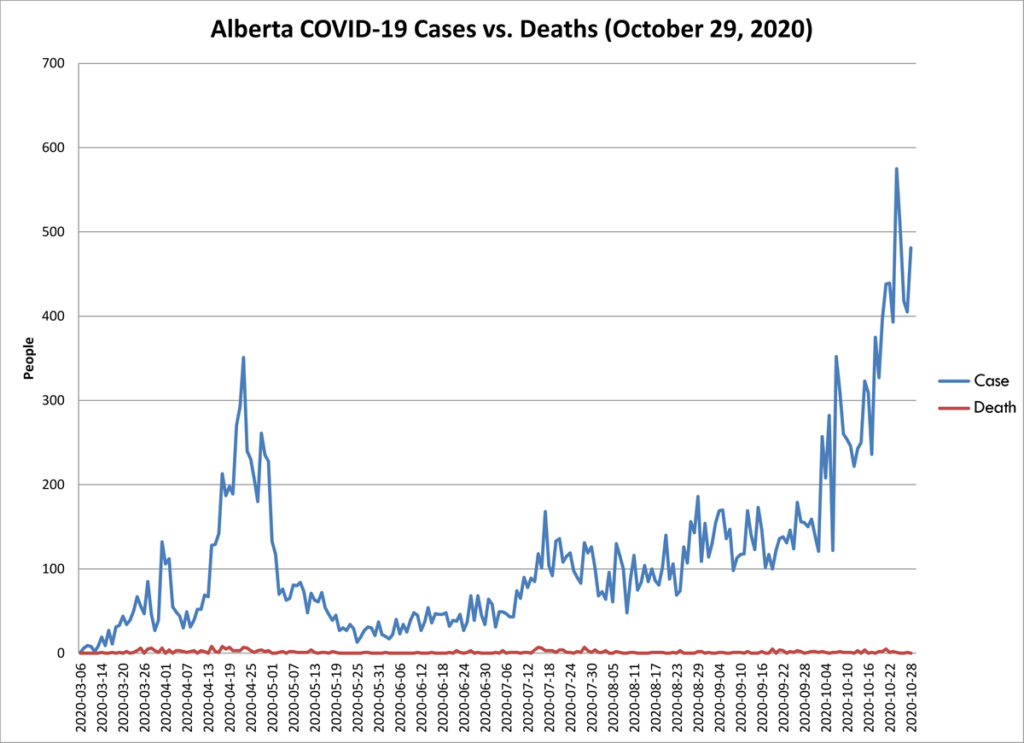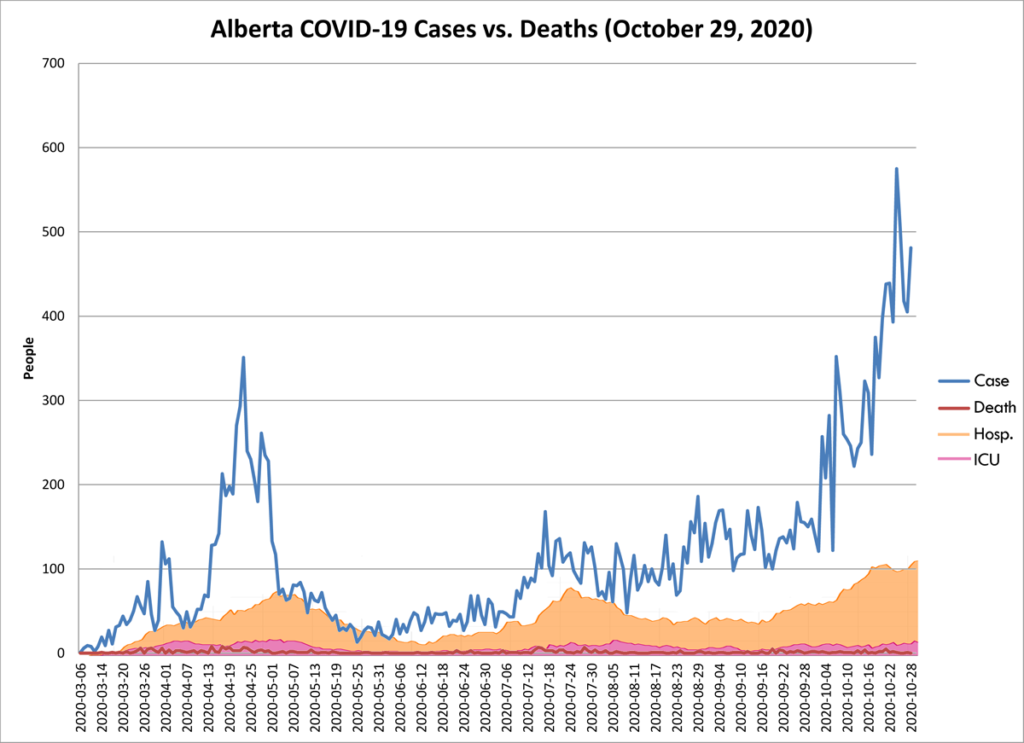We know many have a hard time understanding Christians who desire to gather during this health crisis. We’re accused of being selfish and unloving, overly political, and eager lawbreakers. Christians have great admiration for our government, law enforcement, doctors, nurses, and those who serve in these and other ways. We love God, we love our neighbors, and earnestly desire to see God’s justice, mercy, and kindness hold sway in our city and province.
We understand the dangers of COVID-19 but we also understand the dangers of policies that seek to reduce the spread of the virus. All must admit that the lockdowns and restrictions have been damaging. Depression and other mental and behavioral issues due to isolation, increased drug use, increased suicide, pornography, economic devastation, small businesses lost, and many other hardships causes our hearts to break for the people suffering. We want to care for those vulnerable to lockdowns and restrictions along with those vulnerable to COVID-19. Sadly, people have had their God-given responsibility for their own livelihoods and health choices taken away from them. Many have been hindered from caring for themselves, their families, their aging parents, and their children due to government-imposed restrictions that have restricted the very freedoms the government has sworn to protect.
We also understand that many of our neighbors are confused by the inconsistencies in COVID policy. On January 9, at the peak of the latest wave of hospitalizations and patients in the ICU our Premier, Jason Kenney, said on Facebook, “We know how important the in-person learning experience is for the health and well-being of most students.” Thousands upon thousands of students from thousands of households came together in large gatherings at the height of the crisis, while other businesses or churches could not. We agree that being in-person is essential for learning and the well-being of students. We also contend it is essential for churches and the livelihoods of most Albertans.
Since the beginning of January, the school across the street from our church has been operating at full capacity. COVID rules were adapted so that they can continue to do what is essential for a school. Staff shortages led to new quarantine policies. Symptom lists were relaxed for students. Cohorts were setup for classes. Masks don’t need to be worn if students are seated for instruction. If desks cannot be six feet apart, they can be spaced as much as the classroom allows. In schools all over our city thousands of kids from thousands of households are gathering together every day of the week—even with many outbreaks of COVID-19.
We have no objection with these accommodations since the standard rules would prevent the school from doing what is essential for a student’s education. Should not this be the policy for every school, business, and church? We are not against all rules and health measures. However, we cannot comply with rules that make what we essentially do as a church impossible. And to be clear, it is the Jesus Christ, not civil government, that defines what is essential for the gathered church.
(Whereas schools have experienced many outbreaks, churches have considerably less. Our own church, gathering freely since the end of May has had zero cases of COVID-19. We are not a threat to the public health anymore than schools are.)
Finally, if you are one of those hurting, isolated, alone, fearful of death or disease, then we would encourage you to find the joy, peace, eternal life, and forgiveness of being a follower of Jesus Christ. Jesus said, “I am the way, and the truth, and the life. No one comes to the Father except through me” (John 14:6). He loved those who were sick, those who were downcast, poor, afflicted, and seeking. He came that we might have life and have it abundantly.
God did not make us to be alone. Our earthly relationships are important and necessary aspect of our lives. So too, God made you to have a relationship with him. Jesus died, the just for the unjust, that he might bring us to God (1 Peter 3:18). This is why Jesus came and died in the place of sinners, to bring us into a relationship with God—to bring peace between God and man. It is through this peace we have peace with each other. We are always here to help you to know Jesus and find peace with God.
We pray that you might seek and find the joy of Jesus during this trying time.
Tim Stephens
Senior Pastor, Fairview Baptist Church, Calgary
We are not in this alone. The following churches are standing together, united under The Church Must Gather statement (see below) from https://www.libertycoalitioncanada.com/the-church-must-gather
We are worshiping freely under Christ and welcome people to join with us.
Many other churches across our province will be joining us in the coming weeks. Please let us know if you wish to be added to this coalition of Alberta churches who are freely open.
GraceLife Church, Edmonton
Fairview Baptist Church, Calgary
Grace Bible Fellowship, La Crete
Grace Family Reformed Baptist Church, Medicine Hat
Living Hope Evangelical Church, La Crete
Reformed Grace Baptist Church, Vermillion
Redeeming Grace Bible Church, Fairview
Heights Baptist Church, Medicine Hat
Victory Baptist Church, Sherwood Park
Grace Community Church, Lethbridge
Appendix: The Church Must Gather Statement
- Whereas, the first and great commandment is that “You shall love the Lord your God with all your heart, and with all your soul, and with all your mind” (Matthew 22:37; cf. Deuteronomy 6:5);
- And whereas, this first and great commandment is a summary of the first four of the ten commandments (Matthew 22:37-40);
- And whereas, the first commandment tells us who to worship, the second commandment tells us how to worship, the third commandment tells us the manner of worship, and the fourth commandment tells us the when of worship (Exodus 20:3-11; cf. Deuteronomy 5:7-15);
- And whereas, since the resurrection of Christ, the first day of the week called the Lord’s Day is to be kept holy unto Him (1 Corinthians 16:1; Acts 20:7; Revelation 1:10);
- And whereas, it is impossible to love God without regard to the first four commandments (John 14:15; John 15:14; 1 Jn. 2:3, 5; 5:3);
- And whereas, God defines public worship to include the physical gathering of his people (Leviticus 23:3; Psalm 89:7; Hebrews 10:25);
- And whereas, we are explicitly forbidden from rendering to Caesar what is God’s (Mark 12:17);
- And whereas, we must obey God rather than man (Acts 5:29);
- And whereas, Christ is the only Head of the Church (Colossians 1:18; cf. Ephesians 1:19-23);
- And whereas God alone is the Lord of the conscience, and has left it free from the doctrines, traditions and commandments of men, which are in anything that is contrary to His word; or beside it in matters of faith and worship (Acts 4:19; Acts 5:29; 1 Cor 7:23; Matt 23:8; 2 Cor. 1:24; Matt 15:9);
- And whereas, only the demonstrably sick are to be quarantined (Leviticus 13:1-9);
- And whereas, believers are no longer subject to bondage through fear of death (Hebrews 2:15; cf. 1 John 4:18; Philippians 1:21);
- And whereas, the mission of the Church is the glory of God in the salvation of sinners (Matthew 28:19-20; 2 Corinthians 4:4-5; 5:20)
- And whereas, the primary means of the spread of Christ’s kingdom is through the preaching of God’s Word (1 Timothy 2:7; 2 Timothy 1:11; 2 Timothy 4:2; Romans 10:17);
- And whereas, love for God takes precedence over our love for our neighbour (Matthew 22:37);
- And whereas obedience to God shapes our love for our neighbour (Romans 13:7-14);
- And whereas, love for neighbour concerns itself with the whole man, soul and body (Proverbs 1:7; Ezekiel 18:4; Matthew 10:18; 2 Corinthians 5:10-21);
- And whereas, God’s glory is our reason for being (Philippians 1:20)
We the undersigned, believe that churches or believers must continue to gather in person for public worship with or without the permission of the civil authorities.
Statement taken from https://www.libertycoalitioncanada.com/the-church-must-gather
Visit their website for a full list of churches across Canada who stand with us.



